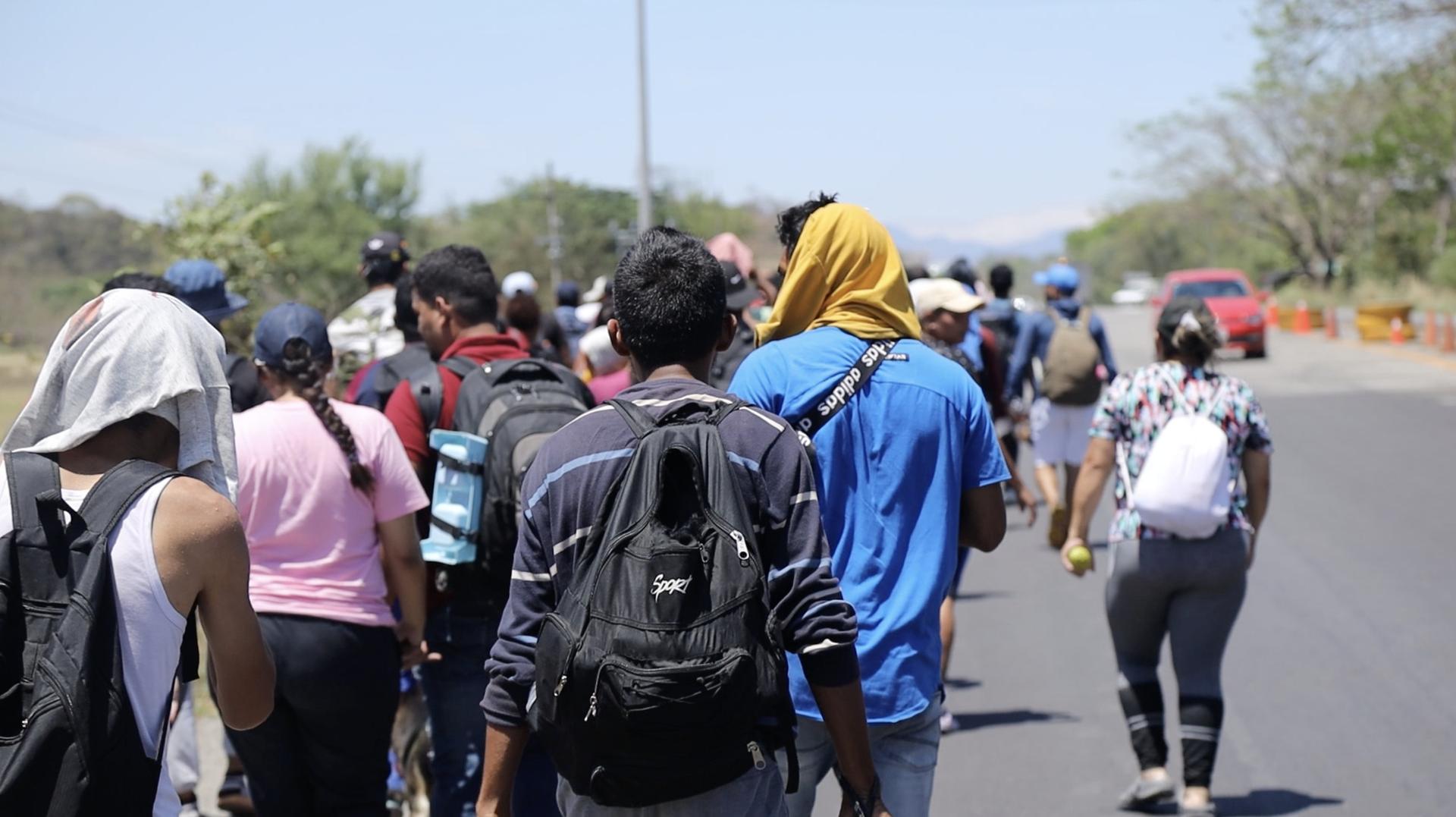Hundreds of migrants walk in the midday heat on the shoulder of a dry, two-lane highway in the southern Mexican state of Chiapas. Most of the people in this group are Venezuelan.
Xon Bravo is one of them. He’s been traveling for the last month — through the jungle from South America and across Central America. And he’s not alone.
“There are so many people,” he said. “Thousands and thousands. From every country. Colombia, Haiti. China. Venezuela. Ecuador. Peru.”
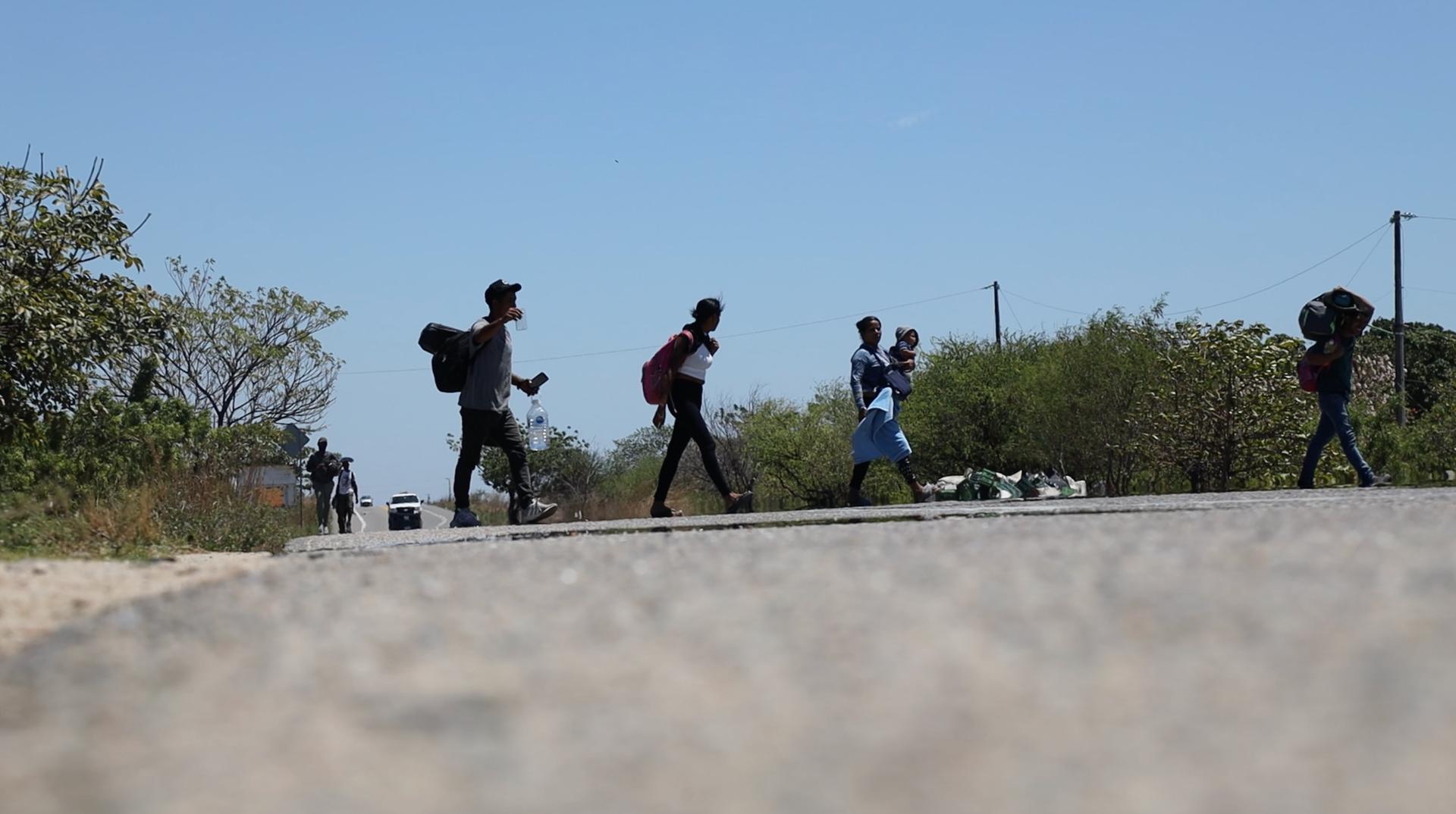
Migrants like Bravo are walking north to the United States, hoping for a better life. But before they make it to that border, they must make it across Mexico’s southern border, which is getting more and more difficult.
“When we are on the other side, it’ll be worth it,” Bravo said. “Every sacrifice has its reward.”
But those rewards aren’t guaranteed.
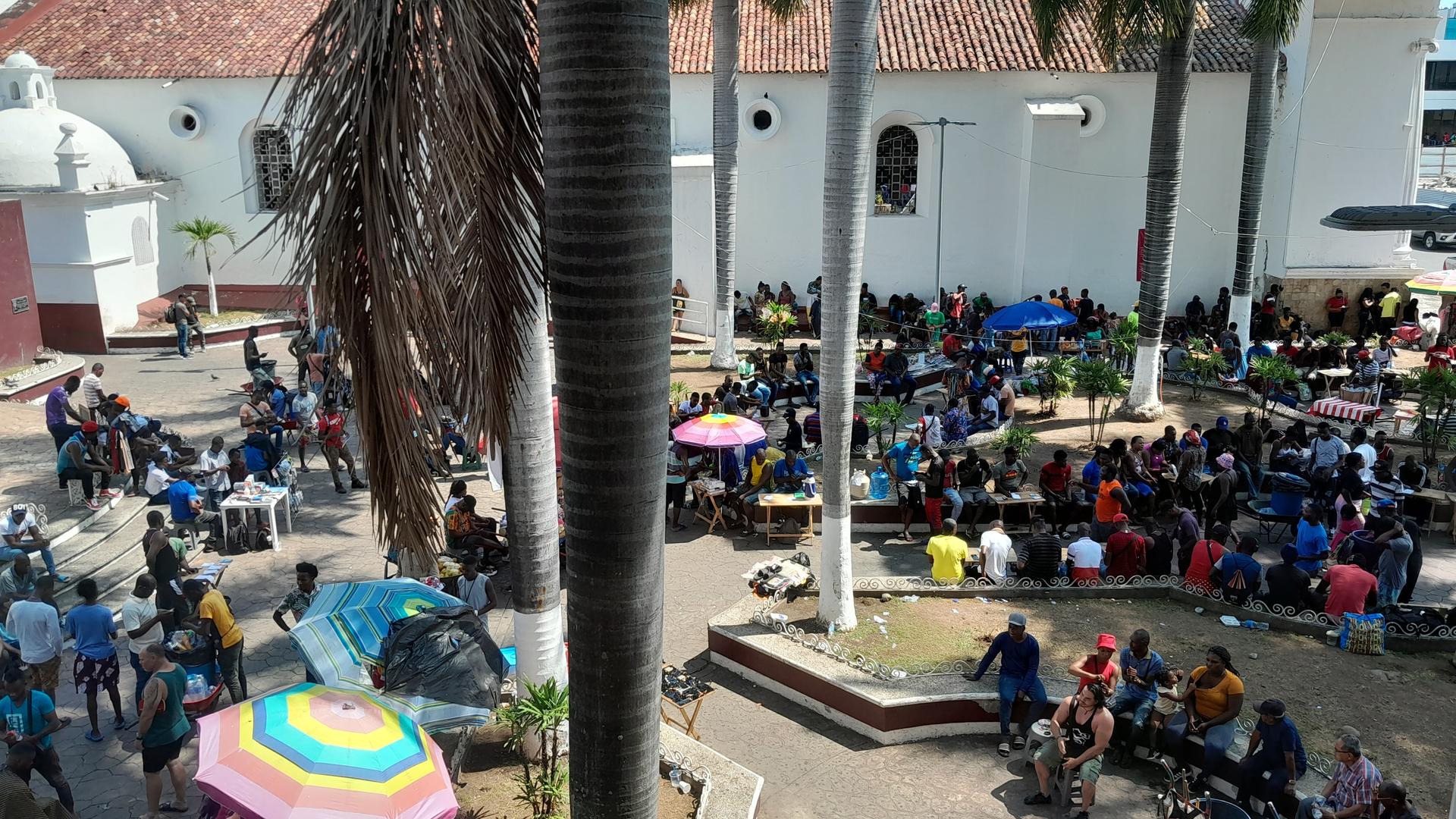
Tapachula
Tapachula is the primary hub in Mexico for migrants arriving from Central America. It’s a bustling, gritty city of 350,000 people. Most cross into the country illegally from Guatemala. Once here, people try to get official papers that allow them to travel north across the country. And scrape together money for the journey.
The main square downtown is packed around the clock, mainly with Haitian migrants. They change money, give haircuts and sell phone SIM cards.
Migrant Renes Casalez hawked bottled water and soda out of a large trash can that he pushed on a wheelbarrow.
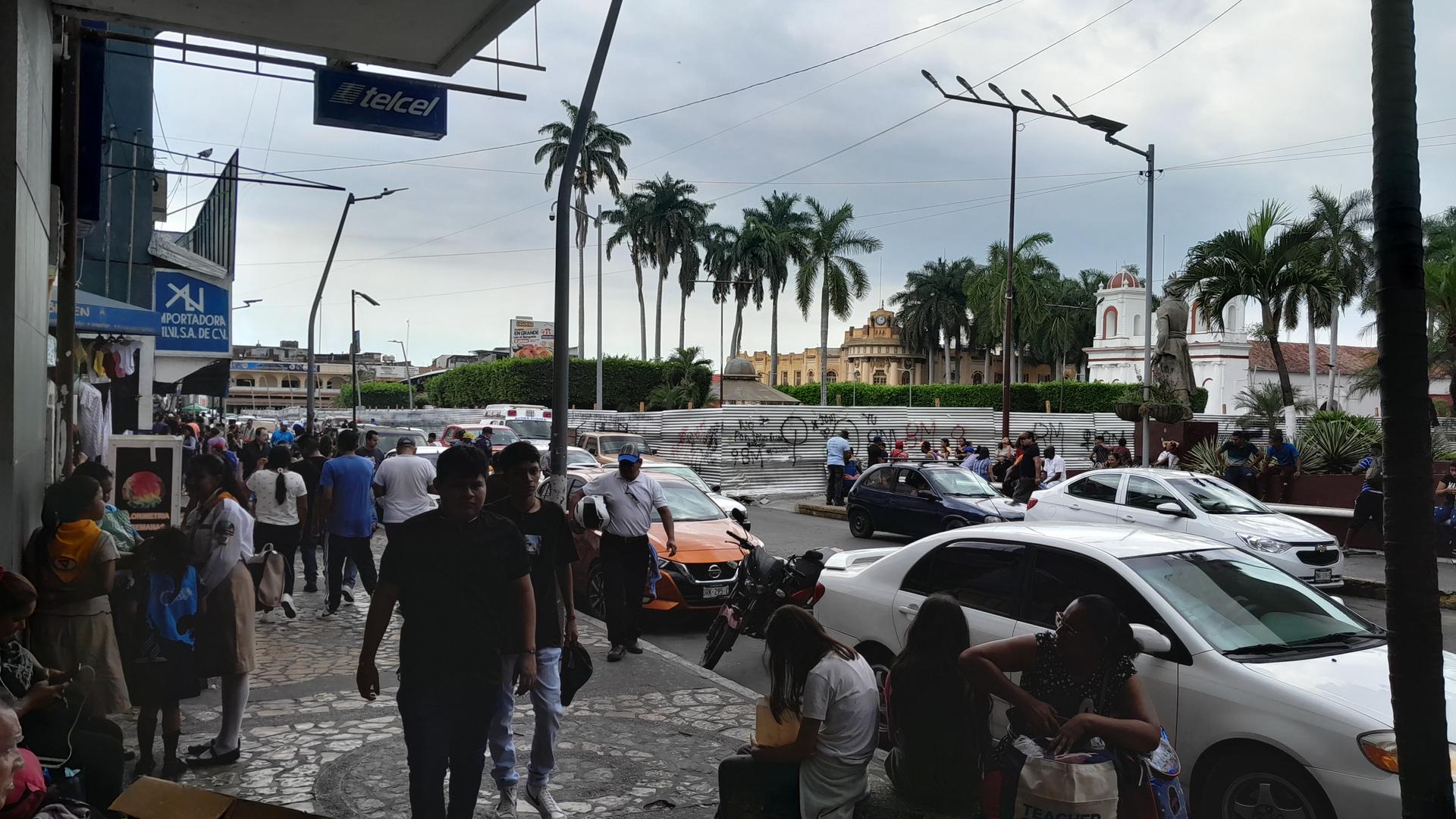
“It’s really hard here,” he said. “There’s no work. I was up at 6 a.m. But I haven’t sold anything. If I could leave Tapachula now, I’d do it in a heartbeat.”
Casalez and his wife walked here from Chile, where they’d lived before. They’ve been here for 11 days. But officials tell them it’ll be at least three months before they can get papers. That’s the average wait for most Haitians who want to legalize their status in Mexico.
With the constant arrival of new migrants, housing is a problem. A small tent city spills out in front of the main shelter, which cannot handle the demand. People are camped across the city in public parks, riverbanks and the streets.
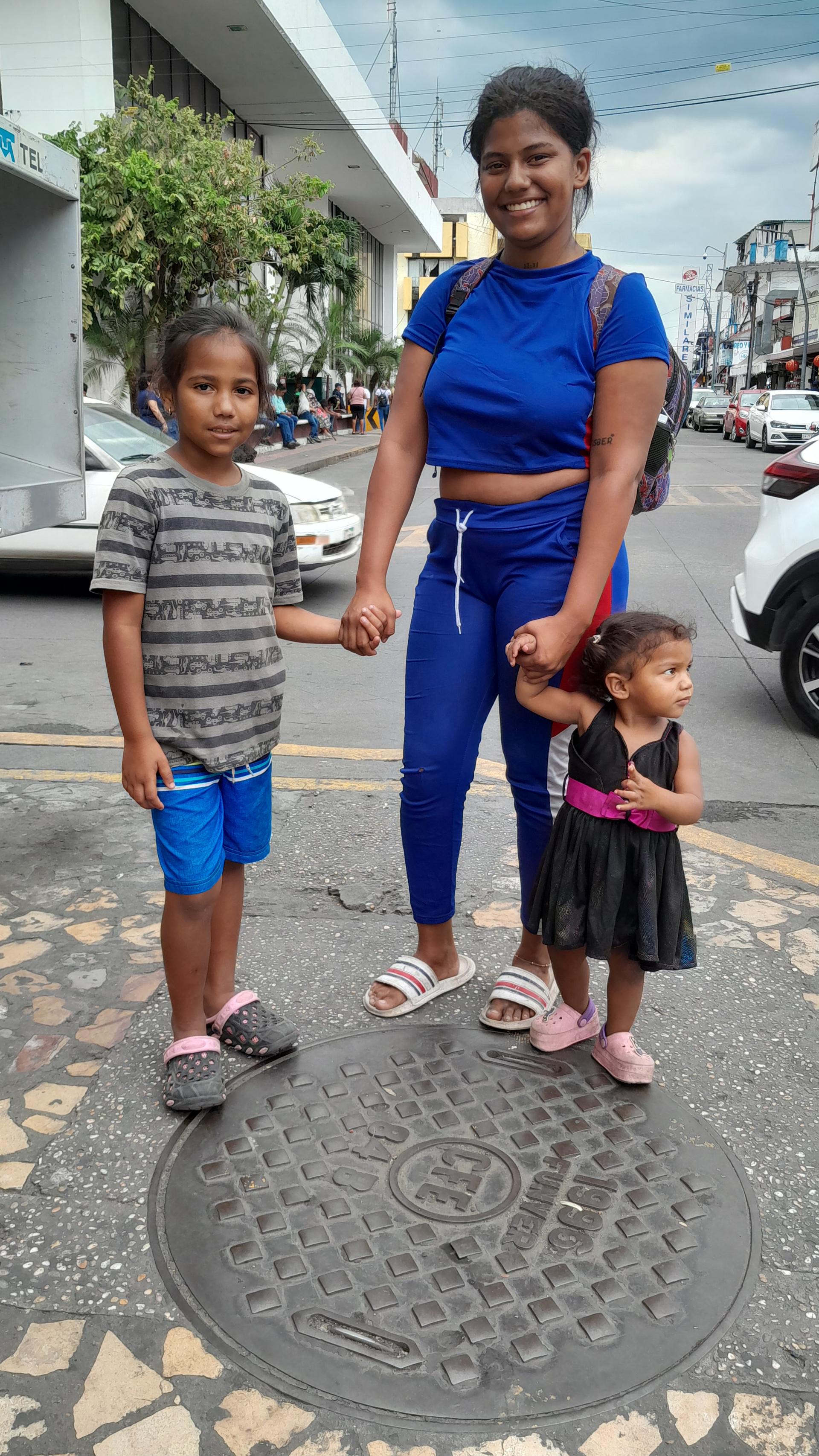
One of those camping out is Eidimar Rocillo. She’s a single mother and pregnant. Rocillo is from Venezuela and traveled with her two children to get here. She arrived two days ago.
“The trip has been really hard. But not impossible with the help of God,” she said. “We’ve faced humiliations. Disrespect. We’ve been robbed. It’s been terrible.”
Like many Venezuelan migrants, she’s hoping to acquire a transit visa to get across the state of Chiapas. Usually, it can take less than a week, but now, she said, Tapachula’s immigrant agency is backlogged.
It’s not surprising. Thousands of transit and humanitarian visas are processed in this city every month.
Mexico’s Refugee Aid Commission, COMAR, is the office where people apply for refugee status.
COMAR’s Tapachula office director, Daladier Anzueto, said that 60% to 70% of Mexico’s refugee requests go to his office, and that the numbers are growing.
“Since 2018, with the beginning of the caravans, the flow of the people arriving has been increasing,” he said. “2022 was a huge year with a massive arrival of people, and it looks like this year, we are going to surpass all previous records.”
He said that in the first three months of 2023, 20,000 people had already requested refugee status — and that’s just through COMAR’s Tapachula office.
Haitians lead the way, followed by Hondurans, Venezuelans and Cubans, while hundreds come from Afghanistan.
People from Haiti, Venezuela, Cuba and Nicaragua are encouraged by US President Joe Biden’s new policy to prioritize migrants from their countries.
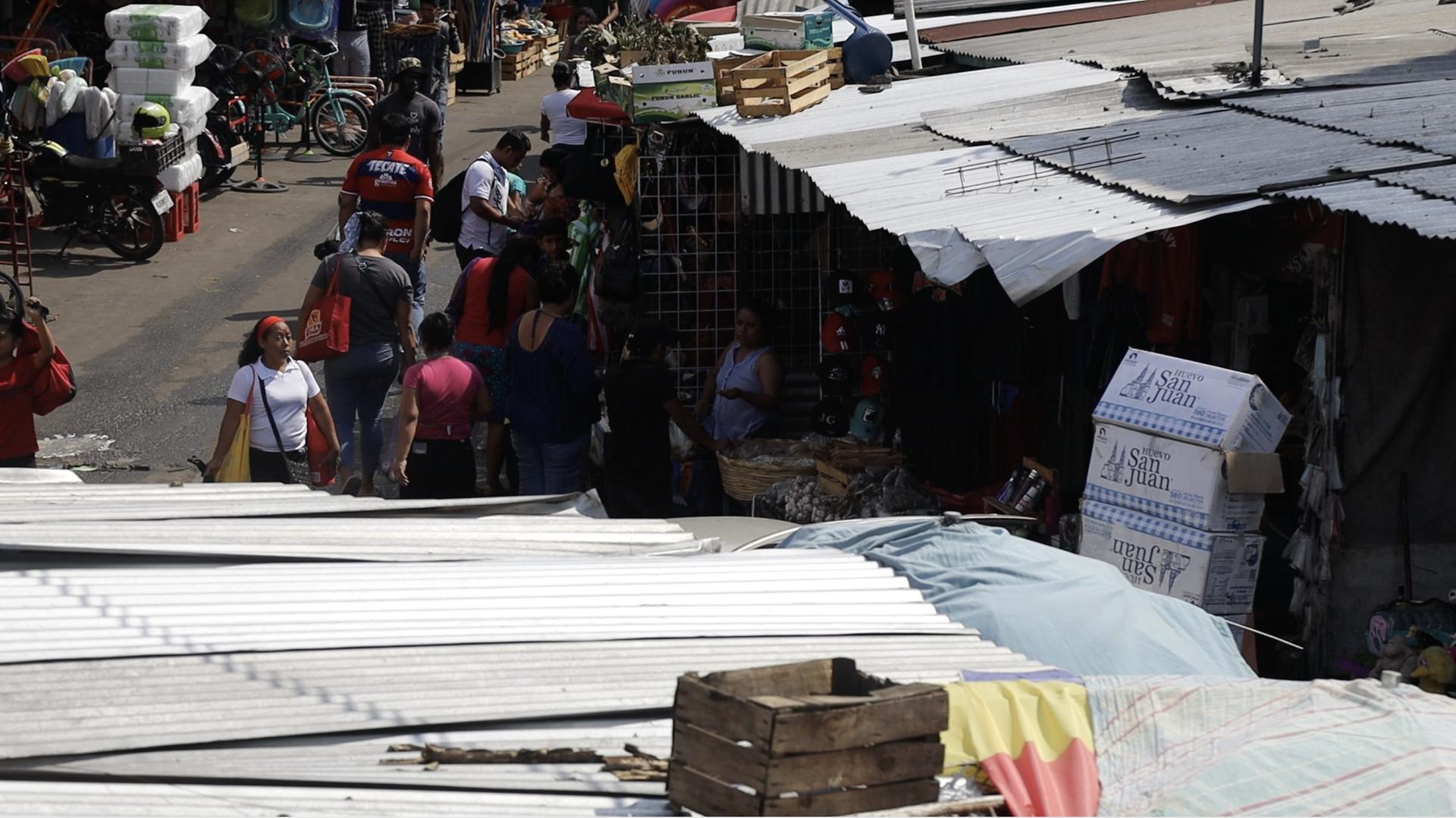
“They tell me it’s a little easier for those four countries,” Casalez, the street vendor, said. “A little better.”
Biden has promised to welcome 30,000 migrants a month from Haiti, Venezuela, Cuba, and Nicaragua, but only if they cross into the US legally. Others will be deported right back to Mexico.
No one is certain they’ll be able to make it across the US border, but many are hopeful.
“There’s a lot of people suffering here,” said Haitian migrant Jean Bernard.
He lived for many years in Brazil before trekking northward, hoping to join family in New York.
“And everyone has the same idea. Everyone’s dreaming of the United States.”
And those dreams are all that many migrants here have to hold on to.
Our coverage reaches millions each week, but only a small fraction of listeners contribute to sustain our program. We still need 224 more people to donate $100 or $10/monthly to unlock our $67,000 match. Will you help us get there today?
